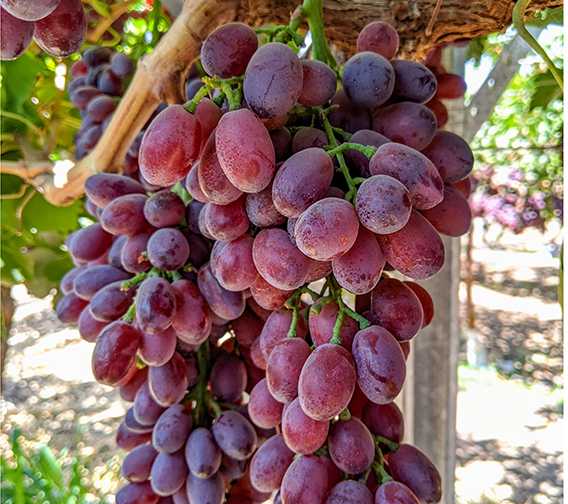The Grower’s Take: Citrus, HLB, and Biological Control
Uncle Matt’s Organic orange juice brand has enjoyed steady growth since its 2002 inception. The brand’s success is due to the McLean family, which has grown citrus for four generations. Vice President of Operations Ben McLean manages the organic citrus grove.
The single biggest challenge facing Uncle Matt’s Organic — and all citrus growers in Florida — is citrus greening. Greening (Huánglóngbìng — HLB for short) is a bacterial disease spread by the Asian citrus psyllid. There is no cure, and since its discovery in 2005, it has devastated yields and quality in Florida’s signature crop. Researchers and growers are on the hunt for solutions to the problem.
 How has greening impacted the groves you manage?
How has greening impacted the groves you manage?
Ben McLean: From 2008-2009, we have seen significantly reduced production in Florida. We have been impacted severely by the disease, like most citrus growing regions in the state.
As far as Uncle Matt’s Organic juice brand, it has impacted our ability to source juice. Up until a few years ago, we sourced everything in Florida, but now we source outside the state to meet demand. But part of that is the demand for our juice has been growing, too, which is a good thing.
How do biocontrol products fit in your production plan?
Ben McLean: My father regularly releases Tamarixia radiata [a natural parasitoid of the Asian citrus psyllid] in select groves. We have a grove that is about 60 acres where my dad has regularly released the wasp for seven or eight years running now, and it has kept the Asian citrus psyllid counts very low. When USDA does the trap counts, we are told that grove remains on the low to very-low end of psyllid counts across this region.
When it comes to biopesticide products, there are several we have had success with. We like Neemix (azadirachtin, Certis USA) and Aza-Direct (azadirachtin, Gowan). I have found those two neem products to be really effective. I grew some organic vegetables this spring [on] a 1-acre research farm. I grew tomato, pepper, cucumber, and squash. Regular applications of the Aza-Direct did an outstanding job keeping insect populations low.
When it comes to citrus, we follow the research results. Dr. Phil Stansly, an entomologist with the University of Florida/Institute of Food and Agricultural Sciences (UF/IFAS), discovered that there is some efficacy in the neem products, particularly combined with a 435 spray oil type of product.
I did some research work with Dr. Michael Rogers, an entomologist with UF/IFAS. We found Mycotrol (BioWorks), which is based on the beneficial fungus Beauveria bassiana, gave some good, statistically significant results of controlling the psyllids during certain windows of the year, particularly in the fall through the winter.
We also found with the young trees, sprays with Surround (kaolin, NovaSource) was effective to help protect against psyllids. But even with this and the other things, we still find a decent amount of infection in the young grapefruit by the time they are four and five years old.
Like all the products out there, conventional or organic, nothing has been able to get adequate psyllid control as a stand-alone throughout the year. In my opinion, even in the conventional citrus industry [where they] are spraying regularly, the psyllid counts remain high.
If you get on a good program with multiple tools, you can keep your psyllid counts pretty low. However, not low enough where greening is not still spreading through your grove.
Our long-term solution, organic or conventional, will be resistant and tolerant genetics. Our best grove now is a new 15-acre planting of ‘Sugar Belle’ [tangerine], where we are using these materials to control the psyllid. We are optimistic, because the research has shown the variety is much more tolerant to greening.
Are you confident a solution to greening will be found?
Ben McLean: I am optimistic. Between USDA and UF/IFAS researchers, we are going to find some rootstocks and scions of Hamlin and Valencia oranges that will at least be like the ‘Sugar Belle’, with a tolerance that is better.
They may not be 100% resistant to greening, but there is enough tolerance to grow a good quality crop, enough to be profitable. Unfortunately, it is a long-term solution, and it will be five to seven years before our researchers can confidently say, “Yes, plant the scion on this rootstock, and the yield and quality will be this.”
Ultimately we are optimistic in our own farm plan because we have seen some rootstocks like ‘Cleopatra’ mandarin that seem to be more tolerant that give us hope, as well as scions like the ‘Sugar Belle’. We hope to continue the development of new varieties that will bring us more tolerance and/or resistance to replant the state of Florida and rebuild our tree inventory.










